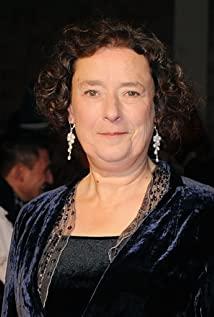This is Hannah, her contradiction and opposition are because she is in such a vicious circle: because she is ignorant of the law, she confesses, but she confesses precisely because she is unwilling to expose her ignorance. But we have to love her, because she has a strong sense of self, lonely but strong, indifferent, persistent, and courageous.
There is always a kind of people in this world. They have no worldly fetters and no moral yardstick. Their world is self-contained. They are humble because of lack, sensitive because of humbleness, stubborn because of sensitivity, and repulsive because of stubbornness. Therefore, they cannot be understood, and they do not want to be understood, because they cannot be understood, in order to maintain their small, weak dignity.
So Hannah chose to conceal the facts and pleaded guilty. It was right for Mike not to see her, and it was also right for Mike to hide it for her. Mike's behavior is partly because he understands Hannah, and partly because of his cowardice, but the unprovoked death of more than 300 lives needs to be borne by someone, and as far as Hannah herself is concerned, she would rather be imprisoned for life than give up. Her small, weak and strong dignity. That was the dignity she tried to maintain, and she regarded it as a totem, a belief. She has lived for more than 40 years, concealed it for more than 40 years, she has nothing, this is the only persistence she can choose. No matter how ridiculous this insistence is, everything in the world is light if you take it lightly, and heavy if you take it seriously. The difference between Hannah and other prisoners is that they have to choose to live - the mastery of knowledge only allows them to learn to avoid and shirk. , and her choice is, even if she is misunderstood, don't be underestimated - what doesn't exist, the so-called underestimation is just because she takes it too seriously, and the heavy one would rather lose the freedom of the rest of her life.
Mike and Hannah. The first half of the film is like a sexual enlightenment educational film. Mike's feelings for Hannah are like that of all fourteen-fifteen-year-olds, reckless and reckless, with the desperate and stubbornness that is unique to youth, not knowing skills, not knowing how to manage, but just wanting to be nice to each other and putting him away. Yes, all of them are given to you, all are given to you, and I don’t ask you whether you want it or not. And Hannah, she chose Mike at first, maybe just because of loneliness, maybe there was a conspiracy of "reading aloud". Later, she was moved by the reading aloud and the sincerity of the young man, and gradually began to care, became angry, and quarreled, but she always Understand the inequality and gap between them - she is too calm and too realistic, so she left silently in the end.
It's not a question of love or not. This woman, throughout Mike's life, made him deeply attached and ruthlessly guilty. Even the confrontation between war and peace is not an excuse. He still sent her a tape, which made her yearn for life again, and she could finally write to him. In the short letter, there was pride between the lines. . "Little guy, why don't you reply to me?" You see, I can already write, I can write by myself, and I am finally like you. At this time, Hannah was old. Because of her old age and naivety, she finally got out of her illiterate and strong inferiority complex, and she got out of the inequality that she felt inferior to Mike because of reading aloud. She thought they were the same, but Mike had grown up. They were not only separated by age, but also a past that could not be returned. When Mike offered help but refused spiritual communication, Hannah also died. idea. She had looked forward to Mike's reply, which was a kind of support, a kind of affirmation, which made her believe that there were still people on her side in the world. But Mike didn't, not even one. If love is a thing of the past, is Mike's help a kindness or charity?
This film contains deep sadness and contradictions. Who doesn't want to be recognized, but the road to recognition is long and arduous. However, if you are given a choice, do you want to be punished by recognition, or be forgiven by not being recognized?
View more about The Reader reviews











